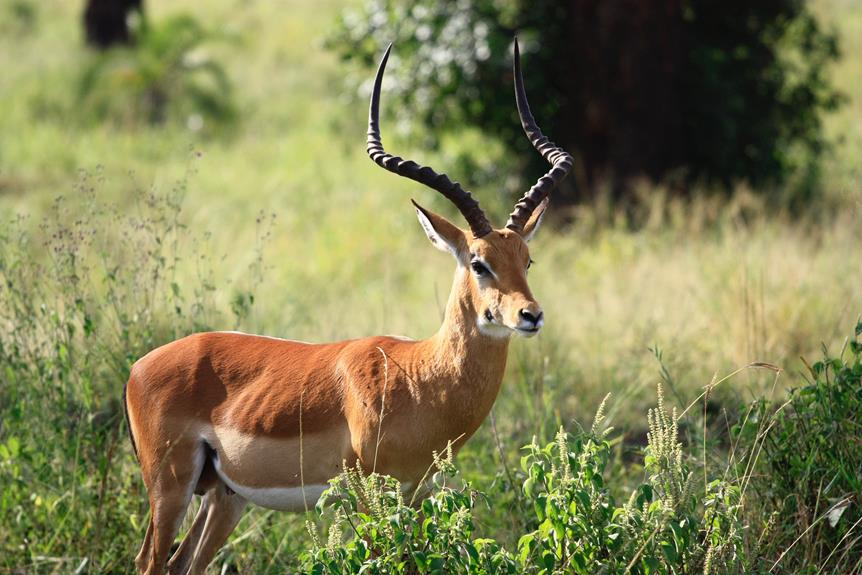As I explore the Algarve Natural Parks, I am amazed by the beauty and diversity that surrounds me. These parks are like precious gems, shining with unique habitats and breathtaking landscapes. But, they need our help to stay pristine and protected.
That's why I want to share with you the nature conservation efforts happening here. Conservation organizations, along with the Portuguese government, are working tirelessly to ensure sustainable development and safeguard the natural environment.
However, there are challenges we face, like the controversial Praia Grande development, which poses a threat to sensitive habitats. We are striving to establish a nature park to preserve our precious natural heritage, but there are concerns about the proposed investment.
Ongoing management and continuous investment are crucial to protecting the delicate ecosystems in the Algarve Natural Parks. Together, we can make a difference and serve these parks for generations to come.
Key Takeaways
- Algarve's Natural Parks showcase unique natural heritage and are carefully managed to preserve diverse ecosystems and protect flora and fauna.
- Biodiversity conservation initiatives, such as strict regulations and ongoing management efforts, aim to maintain rich biodiversity in Algarve's natural parks.
- Sustainable tourism is vital for the conservation of Algarve Natural Parks, with organizations and local entities balancing economic activities with preservation.
- Wildlife protection and restoration efforts involve a collaborative approach with conservation organizations, government, community, and research institutions like the University of the Algarve.
Algarve's Natural Parks: An Overview
In my overview of Algarve's Natural Parks, I'll explore the current conservation efforts and initiatives that are taking place within these protected areas.
The Algarve is home to several Natural Parks, each showcasing the unique natural heritage of the region. These parks are carefully managed to ensure the preservation of their diverse ecosystems and the protection of the flora and fauna that call them home. Nature conservation is a top priority, and strict regulations are in place to safeguard these protected areas from any harmful activities.
The Natural Parks of Algarve offer visitors the opportunity to immerse themselves in the beauty of nature while also learning about the importance of preserving our natural resources.
Now, let's delve into the biodiversity conservation initiatives that are being implemented to further protect this incredible natural heritage.
Biodiversity Conservation Initiatives
To effectively protect the biodiversity within Algarve Natural Parks, various conservation initiatives have been implemented, including the establishment of strict regulations and ongoing management efforts. These initiatives aim to safeguard the natural heritage of the region and ensure the prosperity of future generations. One such initiative is the creation of the Natural Marine Park of the Algarve Reef Pedra do Valado. This park aims to protect almost 900 species, including those new to science, from pressures such as fishing and tourism. Additionally, the Conservação da Natureza, in collaboration with other conservation organizations, works tirelessly to preserve the unique ecosystems found within the Serras de Aire Natural Park and other protected areas. Through continuous investment and active management, these initiatives strive to maintain the rich biodiversity that makes Algarve's natural parks truly remarkable.
| Conservation Initiative | Description |
|---|---|
| Natural Marine Park of the Algarve Reef Pedra do Valado | Aims to protect almost 900 species, including those new to science, from pressures such as fishing and tourism. |
| Conservação da Natureza | Works to preserve the unique ecosystems found within the Serras de Aire Natural Park and other protected areas. |
| Strict regulations and ongoing management efforts | Implemented to effectively protect the biodiversity within Algarve Natural Parks. |
Sustainable Tourism in Natural Parks
I actively promote sustainable tourism in Algarve Natural Parks. Sustainable tourism is vital for the conservation of our natural parks, such as the Algarve Reef, which is home to a diverse range of marine life. The Conservação da Natureza and local entities work tirelessly to strike a balance between economic activities and the preservation of our natural environment.
Sustainable tourism practices ensure that visitors can enjoy the beauty of the parks while minimizing their impact on the delicate ecosystems. Interested parties, such as conservation organizations and local communities, are involved in the planning and management of tourism activities to ensure that they're sustainable and respectful of the environment.
By supporting sustainable tourism initiatives, we can contribute to the long-term protection of these natural parks and the wildlife that inhabit them.
Now let's delve into the efforts made for wildlife protection and restoration.
Wildlife Protection and Restoration Efforts
Continuing my active promotion of sustainable tourism, I actively engage in wildlife protection and restoration efforts in Algarve Natural Parks. These efforts are crucial to preserving the biodiversity and natural capital of the region.
Here are three key aspects of these initiatives:
- Conservation of the Algarve Reef Pedra do Valado: This unique marine habitat is home to nearly 900 species and plays a vital role in supporting the development and survival of various fish species. Through the establishment of the proposed Natural Marine Park, we aim to protect and restore this important ecosystem.
- Collaborative approach: The protection of wildlife in Algarve Natural Parks involves the active participation of various stakeholders, including conservation organizations, the Portuguese government, and the local community. By working together, we can ensure the effective management and restoration of sensitive habitats.
- Research and education: The University of the Algarve plays a significant role in wildlife protection efforts by conducting research, monitoring species populations, and educating the public about the importance of conservation. Through these activities, we strive to raise awareness and promote a deeper understanding of the need to protect and restore the region's wildlife.
Community Involvement in Nature Conservation
One key aspect of these wildlife protection and restoration efforts in Algarve Natural Parks is the active involvement of the local community. Recognizing the importance of community engagement, conservation organizations in the Algarve have made it a priority to include local residents in the decision-making processes and implementation of nature conservation initiatives. This approach ensures that the community feels a sense of ownership and responsibility towards the protection of their natural parks.
In recent years, the Algarve has seen the successful implementation of community-led conservation projects. For example, when a proposal was presented for the development of Praia Grande, a nature park in the region, the local community came together to voice their concerns about potential threats to sensitive habitats. The community's involvement in raising awareness and advocating for the preservation of the area's natural heritage played a crucial role in preventing the destruction of these ecological gems.
Furthermore, fishing associations in the Algarve have also played a significant role in community involvement in nature conservation. These associations have actively participated in conservation efforts by promoting sustainable fishing practices and advocating for the protection of marine ecosystems. Their collaboration with conservation organizations and government bodies has resulted in the development of effective strategies to preserve the region's marine biodiversity.
Frequently Asked Questions
What Wildlife Is in the Algarve?
The Algarve is home to a diverse range of wildlife, including endangered species. Bird watching is popular, with pink-feathered flamingos and white storks being common sights. Marine life is abundant, making it a hotspot for nature reserves and conservation projects. Wildlife tourism thrives here.
How Many National Parks Does Portugal Have?
Portugal has one national park, the Peneda-Gerês National Park. The Algarve has several protected areas with conservation initiatives focusing on preserving biodiversity and promoting environmental education. Sustainable tourism and wildlife conservation are also priorities.
Are There Bats in the Algarve?
Yes, there are bats in the Algarve. Bat populations are protected through various conservation methods, including habitat protection and raising awareness about the ecological importance of these nocturnal species. However, threats to bat populations still exist.
What Is in the Sea in Portugal?
In Portugal, the sea is a treasure trove of marine life and breathtaking diving spots. It plays a vital role in supporting the fishing industry and protecting coastal areas from erosion. Efforts are underway to safeguard marine biodiversity through the creation of marine protected areas and other ocean conservation initiatives.
Conclusion
In conclusion, the nature conservation efforts in the Algarve Natural Parks are crucial for protecting its unique biodiversity and ensuring sustainable development.
The ongoing initiatives, including the establishment of a nature park and collaboration with conservation organizations, aim to preserve the area's natural heritage.
However, the proposed investment of one million euros may not be sufficient to meet the challenges and maintain the sensitive ecosystems.
Continuous management and investment are vital to safeguard the Algarve Natural Parks for future generations, as they're a treasure trove of natural wonders.



